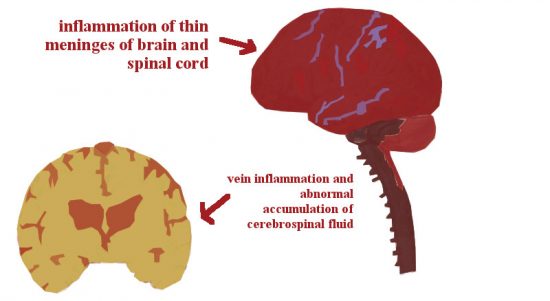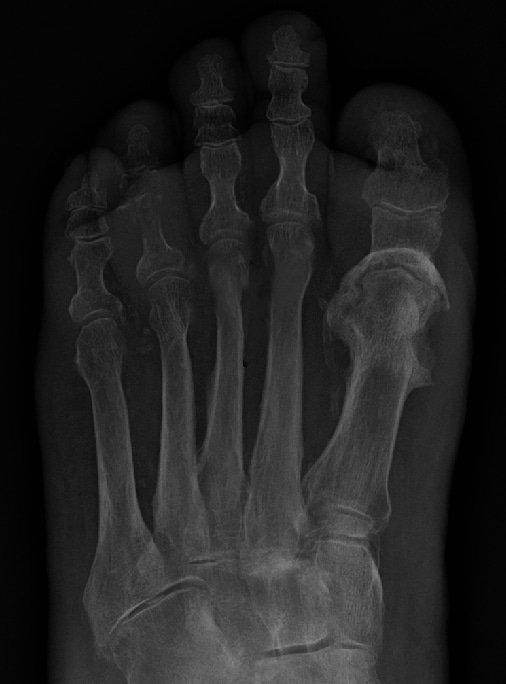Bacteremia is similar to viremia. It is the presence of unwanted bacteria in the bloodstream. Normally, your blood maintains a sterile environment. So, it means that no detection of bacteria is possible. But, in some cases, the bacteria can enter your blood. It may happen as a result of normal activities like brushing your teeth with force. The problem can also occur due to infections or medical procedures. Dental procedures also put you at risk of the complication. So, it is important to know the complication in detail to take necessary steps to prevent the issue.
The presence of a small number of bacteria in the bloodstream may not cause problems. Your immune system has the power to eliminate the threat from the bacteria and keep you healthy. But, people you have health problems or the presence of a large number of bacteria can trigger complications. You may not see any visible symptoms indicating a problem. but, the accumulation of bacteria can result in severe infections. Read ahead to know more about bacteremia and the methods to prevent it from affecting your life.
What Is Bacteremia?

The presence of a large number of bacteria poses a big threat to you. It not only triggers infections but causes a full body response. The adverse reaction is known as sepsis, which is your body’s response to the bacteria. It is a life-threatening condition that can have fatal complications. In most cases, getting treatment for infections can prevent bacteremia. Taking antibiotics beforehand can overcome the bacterial presence due to the complications from medical and dental procedures. So, the problems require medical intervention. Only your doctor can help you alleviate the issue completely.
Risks Due To Bacteremia
Small bacterial accumulation in your blood gets flushed out by the immune system. But, the larger bacterial presence leads to accumulation in different body parts. So, it results in infection in major organs in your body. It mostly affects people who have some artificial material present in the body. Therefore, the problem is common among people with abnormal heart valves or have artificial heart valves. It is also prevalent among people who have prosthetic (artificial) joints or intravenous catheters.
The bacteria tend to collect on different body parts enhancing your risk of getting an infection. The large colonies of bacteria mostly remain attached on the host site. It then frequently or periodically releases bacteria into your bloodstream. So, it increases your risk of getting an infection. The bacteremia in different parts and the subsequent infection caused due to it are:
Brain

Bacteremia in the brain tissues can result in a serious infection known as meningitis. The infection can lead to inflammation in the brain as well as the spinal cord membranes.
Heart

The excess bacteria around the heart sac can trigger the issue known as pericarditis. You can experience sharp pain in the chest region as a result of the problem. it also affects the cells lining of the heart and the heart valves. Therefore, it causes inflammation in people who already have heart issues.
Bones

The bacteria can infect the bones triggering a rare yet serious condition. The condition is known as osteomyelitis results in severe pain, redness, and weakness.
Joints

The bacteria can trigger an infection in the fluid surrounding the joint. The synovial fluid gets infected due to the bacteremia leading to the spreading of infection to the joint. So, the condition also known as septic arthritis can limit mobility. You experience severe pain with any movement of the joints. The condition can also cause severe weakness, exhaustion, fever, and other problems.
Difference Between Bacteremia, Sepsis And Septic Shock
Most people confuse the three medical problems. Many are not aware that the issues are not one and the same. You need to understand each issue to get a clear picture.
Bacteremia
The bacterial presence in the bloodstream can lead to bacteremia. Even a small, harmless activity like brushing teeth or severe infection can cause the problem. Your body’s immune system can flush the small colonies of bacteria with ease. In some cases, bacterial accumulation can increase at an alarming rate. So, it results in infections. The bacteremia is responsible for infection or sepsis. In some cases, you may get affected by both.
Sepsis
Some infections or the bacteremia can initiate an adverse reaction in the whole body. The negative response is known as sepsis. You can experience a rapid heart rate, fever, weakness, and rapid breathing rate. As a response to it, your body produces an elevated number of white blood cells. So, sepsis can affect your internal organs adversely. It results in fatal complication as the vital organs like the heart, kidneys, and lungs can fail.
Septic Shock
Sepsis can lower the blood pressure to dangerous levels. The condition is referred to as septic shock. Septic shock is a life-threatening condition. The low blood pressure can result in your internal organs receiving less blood. So, as a result of the little blood, the organs can malfunction.
Classifications Of Bacteremia
Based on the duration of your symptoms, the bacteremia gets classified into three major types. So, the types are:
Transient Bacteremia
The infection occurring in your body for a small duration of time is known as the transient bacteremia. So, you can face the issue from few minutes to few hours. It can occur due to dental operations, surgical drainage, or gastrointestinal biopsy. It is the harmless type of infection that can cause during everyday activities like:
- Brushing the teeth
- Abrasions on the skin
- Small wounds or injuries
- Defecating
- Injecting drugs intravenously
Intermittent Bacteremia
The infection affects you at irregular time periods. You may expect the attack from the same type of microorganism. The infection is commonly seen in abscesses as well as other infection (like pneumonia, spondylodiscitis, and osteomyelitis).
Persistent Bacteremia
The common examples of persistent bacteremia are:
- Intravascular Infections: Common examples of the infection are an aneurysm and thrombus infection.
- Systemic Bacterial Infection: Typhoid
- Infective Endocarditis: the Common example is heart valve infections

The issue is also classified into different types depending on the site of infection. The blood infection can either occur directly or spread from some other site.
Primary Bacteremia
It is the problem occurring due to direct contact. It mostly occurs due to the infected needle releasing the drugs into the blood. So, it is also caused by the infected catheter or valve in the body.
Secondary Bacteremia
As the name suggests, it occurs due to the infection from some other sites. In most cases, the infection spreads from soft tissues or skin. You can experience the problem as a result of wound infection or pneumonia. In all the scenarios, the bacteria travel from the infection site to the bloodstream.
Causes Of Bacteremia
Bacteria can enter your bloodstream in different ways. The common methods of bacteremia can affect you are:
Simple Activities
Ordinary day-to-day activities can affect healthy people too. Simple tasks like brushing the teeth can lead to the issue. The forceful brushing can make the bacteria accumulated around the gums to enter the blood. The bacteria can enter the body while digestion of food. It enters the bloodstream via the intestine. But, the bacteria that enter your body through normal activities are harmless. It never leads to infections or other complications.
Medical/Dental Procedures
A medical procedure or dental work can lead to the accumulation of bacteria. When you undergo dental procedures by the dental hygienist, you can face the issue. A simple procedure like tooth cleaning can make prompt the bacteria to enter the bloodstream. Therefore, the bacteria living in the gums have more chances of getting into your blood.

If you have catheters or tubes inserted in your body, then you are at risk of the issue. The bacteria can accumulate at the catheters in the bladder and tubes in the urinary tract or digestive tract. When you undergo procedures to move or remove it, it can release the bacteria into the blood. Though your doctor uses sterile techniques, the bacteria reach the blood. Other ways the bacteria can reach bloodstream are:
- Collection Of Pus (Abscesses)
- Pressure Sores
- Infected Wounds
When you treat the conditions, it can dislodge the bacteria into blood triggering bacteremia.
Bacterial Infections
Certain bacterial infections allow the bacteria to enter the bloodstream. The infections like skin abscesses and pneumonia results in increased bacterial presence in the blood. If you have suffered a bacterial infection in your childhood, then you can experience the issue. Therefore, you face a greater risk of getting affected by the complication.
Recreational Drugs Injection
Injecting the recreational drugs paves way for the bacteria to enter the bloodstream. People use used needles to inject drugs. The sharing of needles can contaminate it with bacteria. The unhygienic condition also helps bacteria to accumulate. So, the use of the infected needles can put the greater risk of getting affected by bacteremia.
Symptoms Of Bacteremia
Simple events can result in bacterial accumulation in your blood. As mentioned earlier, dental procedures or rigors brushing can cause temporary bacterial presence in blood. Such cases have no symptoms. So, it clears without any medical assistance. In some cases, infections can lead to the problem. You can experience the following symptoms in such scenarios as:
- Fever
- Chills or Shakes
- Rapid Heart Beat
- Low Blood Pressure
- Nausea
- Abdominal Pain
- Diarrhea
- Vomiting
- Confusion
- Sepsis
- Septic Shock
The gastrointestinal issues and other problems can cause you severe distress. Some people may experience other complications like:
Inflammation Of Heart
The infection can affect the inner lining of the heart. The condition known as endocarditis can trigger inflammation in the inner heart lining. So, it has the potential to damage the heart valves.
Brain Infection
In some cases, the bacteremia can affect the brain tissue. It affects the protective layers of your brain. Therefore, it can result in developing meninges.
Joint Problems
The infections can affect the joints and the fluid surrounding it. So, it leads to mobility issues making it difficult to move around freely.
Diagnosis Of Bacteremia
If you observe any signs associated with the infection, then you need to contact your doctor. Your doctor orders different diagnostic tests to determine the problem precisely. The most common method to detect the bacteremia in your body are:
Blood Sample Culture
If your doctor suspects bacteria in blood, the blood result can provide conclusive results. You need to give your blood sample for testing in the laboratory. The lab technicians culture (grow) the bacteria to identify it properly. Your doctor can order other tests to make a conclusive diagnosis.
Other Diagnostic Tests
For primary bacteremia, the blood culture can provide a decisive conclusion. While for secondary bacteremia, your doctor collects a sample from different parts of the body. In such cases, the infection source is not the blood. So, it is essential to find the actual infection source that pumps the bacteria into the blood. The doctor can take samples from the sources like:
- CSF (Cerebrospinal Fluid)
- Wound Culture
- Stool Culture
- Urine Analysis & Culture
- Pleural Fluid Culture
- Bone Marrow Aspiration & Culture
Depending on the results of the tests, your doctor can identify the bacteria causing the issue. In most cases, the lab results may show the following that indicates an infection:
- Increased ESR (erythrocytic sedimentation rate)
- Elevated procalcitonin (the precursor of calcitonin hormone) levels
- Increased leukocytosis (white blood cell counts)
- Elevated neutrophilia (neutrophils) numbers
- Increased protein (C-reactive) levels
Imaging
The imaging techniques like x-ray can study the chest region in the affected person. The test is prescribed by the doctor for infants as well as small children. The test aims to detect the presence of pneumonia. So, your doctor opts the test if he is unable to find the actual source of infection. The images can shed light on the actual site of infection.
Treatment Of Bacteremia
When infections occur due to bacteria, you need to contact your doctor immediately. The doctor can perform the diagnosis and develop a good treatment plan. In the majority of the cases, your doctor adopts the antibiotic therapy. It is the standard treatment for the bacteremia. The antibiotics prevent the infection from escalating into sepsis. So, depending on the bacteria triggering the issue, the treatment and its duration get decided. As no guidelines point towards the duration of antibiotic treatment, the doctor decides according to the symptoms.
In some cases, the doctors opt to remove the bacteria source. Removing the artificial items in the body like catheters offer relief from the disease. So, the treatment is effective in people who suffer bacteremia due to artificial valves or catheters.
Bacteremia Prevention Methods
You can prevent bacteremia from affecting your health adversely. Depending on the bacteria and the subsequent infection, you can opt for the prevention method. It is better to take precaution from getting the problem compared to treating it. So, you can avoid the distress and pain associated with the infections. The following steps can prevent the issue from distressing your life.
Good Hygiene
Practicing good hygiene can prevent the problem from troubling your life. So, you can follow the pointers to maintain good hygiene:
- Wash your hands properly to clear out all bacteria accumulated in the hands. It prevents the bacteria from getting into the mouth through the mouth.
- You also need to handle the body secretion in the appropriate manner. It will avoid bacteria getting accumulated on the skin surface.
- Cleaning the body by taking bath to times a day can prevent any diseases.
Control Diabetes
Uncontrolled diabetes can weaken your immune system. It makes you more prone to the infections. Therefore, you need to control the high glucose levels in your blood. It will help control the infections and prevent them from spreading.
Manage Infection
Infected patients can contribute to the spreading of infection to others. Therefore, it is essential to control the spread of infection. Isolating the infected patients can prevent infection from affecting others.
Get Immediate Treatment
It is necessary to diagnose the infection immediately. Getting proper medical aid at the right time can help alleviate the problem. Therefore, you must never belittle the infections in the urinary tract and skin. Controlling it at the initial stage can prevent complications.
Vaccination
Getting vaccination can prevent certain infections due to bacteria. Vaccinations like pneumococcal can reduce the risk due to bacteremia in people. Individuals over the age of 65 can take vaccination to effectively prevent complications. Other vaccinations like Hib can reduce the risk of Hemophilus influenza incidents.
Conclusion
You can easily overcome the condition with proper diagnosis and treatment. With proper treatment, you can avoid further complications to other vital organs like kidney, lungs, and brain.
View Article Sources
